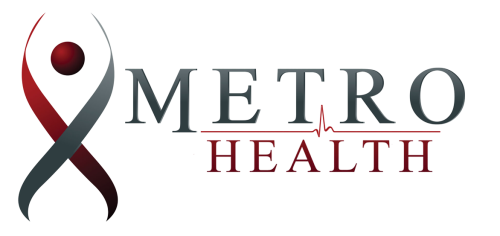As you get older, there are some changes you can expect in your cardiovascular system overall, and specifically in your heart. It’s simply a normal part of aging for most people. In fact, it is estimated that more than 85 million adults in the U.S. have some form of cardiovascular disease, and of those cases, approximately 43 million are 60 years of age or older. Today, cardiovascular disease is the leading cause of death among aging seniors.
That doesn’t mean, however, that a rapid decline in the health of your heart is inevitable. There are steps you can take to keep your heart in good shape for a long time, even if it does take a little more effort than it did when you were younger. The best way to keep your heart healthy is to adopt a change in your lifestyle that includes a healthy diet and at least moderate exercise.
Why is this type of healthy lifestyle so beneficial? Well, in addition to the direct benefits it has on strengthening your heart, it also fights other conditions that can lead to heart problems, including high blood pressure (hypertension) and hardening of the arteries (atherosclerosis).
The physiology of heart disease
The heart is an organ made up almost entirely of muscle and it pumps blood throughout the body, including to itself via the coronary arteries. This supplies the heart muscle with nutrients and oxygen. The most common type of heart disease occurs when plaque builds up inside of the arteries, restricting the flow of blood. The heart muscle, deprived of essential nutrients and oxygen, starts to weaken as muscle cells die off, diminishing its ability to pump blood.
Another form of heart disease results from persistent high blood pressure, which forces the heart muscle to work harder. Like any muscle, working extra hard causes it to get bigger, resulting in an enlarged heart. As the muscle wall gets bigger, the space inside the chambers gets smaller, which means the heart can’t pump blood as efficiently.
Prevention
One of the best ways you can maintain a healthy heart is by becoming more active. If you’ve been fairly sedentary, walking is a great place to start. Begin with a pace that you’re comfortable with and then work your way up to a faster stride. Or, you can choose any physical activity that you enjoy, whether it’s walking, dancing, yoga, tai chi, gardening, or riding a bicycle.
You may have to work up to it, but strive to get at least 150 minutes of exercise per week, preferably split up so you are doing 20 to 25 minutes every day. While you’re exercising, be sure to stay hydrated by drinking plenty of water. Because the goal is to increase your heart rate, it’s okay to push yourself until you’re a little out of breath. However, you shouldn’t exert yourself to the point that it’s painful or you’re having a hard time breathing. Finally, be sure to talk to your physician before starting any new exercise routine.
In addition to raising your activity level, a healthy diet is also very important for a healthy heart. Switching to a heart-healthy diet that avoids trans and saturated fats, salt, and sugar, can help you lose weight and reduce your blood pressure. That means eating more fruits and vegetables, whole grains, and legumes like peas, beans and lentils.
Heart-healthy fish include salmon, albacore tuna, Alaskan halibut, and sardines, all of which contain omega-3 fatty acids. However, limit other meats to leaner cuts with less fat and avoid processed products like cold cuts. For a heart-healthy breakfast, replace the eggs you usually eat with unsweetened oatmeal, which is loaded with soluble fiber, so it can help reduce cholesterol levels and lower your blood pressure. You can add some diced fresh fruit to give it a little more flavor.
Finally, if you are a smoker, do whatever you have to do to quit. Immediately. No matter how old you are or how long you’ve been smoking, it’s never too late to improve your health by quitting. In addition to reducing the risk of heart disease, it can also reduce the likelihood that you’ll develop cancer or suffer a stroke.

